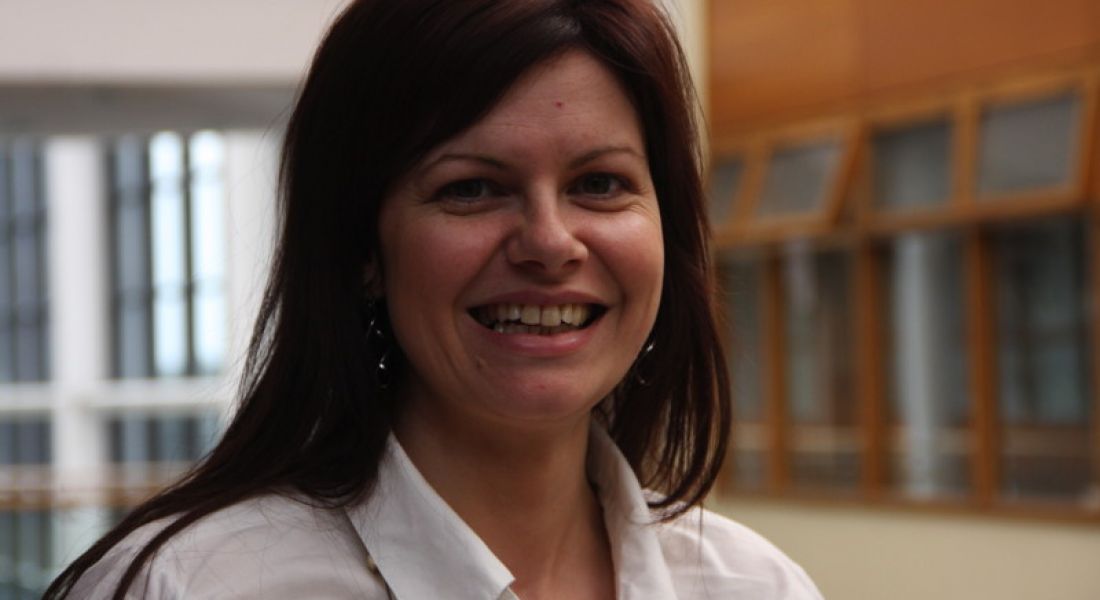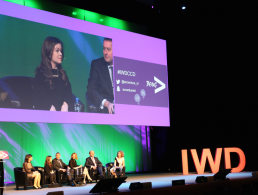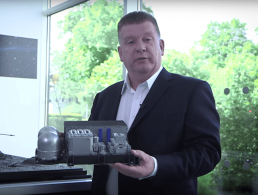The second Hardware Hackathon is coming up at Dublin City University (DCU) Innovation Campus, and Prof Christine Loscher wants more women to take part.
Are you interested in bringing ideas to life? Have you skills in marketing, business, hardware, software or simply an innate curiosity about how problems can be solved?
Then the Hardware Hackathon in Dublin is the place to be from 1-3 November, and the organisers are particularly keen to ensure women are there in numbers, too.
Why? Because based on the previous Hardware Hackathon in September, some of the most successful teams had a mix of males and females, notes Prof Christine Loscher, who will be mentoring at the upcoming event.
“I’m a scientist and I go on evidence,” says Loscher, who is an associate professor at DCU’s School of Biotechnology and director of DCU’s Health Technologies Research & Enterprise Hub. “And at the last hackathon, women were well represented in the winning teams. So if I were going along as a hacker to this event, I would be making sure there are women on my team.”
Making ideas real
The event, which is being run in conjunction with PCH International, DCU Innovation Campus and the Web Summit, is bringing hackers together for the weekend and letting them form teams to realise ideas into prototypes and pitches, particularly around getting hardware and software to connect and solve problems.
“People come in with great ideas and then the hackathon encourages teams to form with the skills needed to bring that idea into reality,” explains Loscher. “It typically needs people who know about hardware and software, people with business and marketing skills and people with the creativity to bring it all together – very few individuals have all those attributes together, so by forming a team that raises it to a new level. And the beauty of it is, in the space of 24 hours a team of people who have never met before can take all those ideas and turn it into something they can pitch.”
Loscher was both surprised and delighted by the informality of the last event, noting a relaxed yet productive atmosphere.
“There were gangs of people sitting in jeans and T-shirts, they had their shoes off and they were messing around with machines, wires and computers on the floor,” she says. “But they were getting things done.”
The team that made up the winner of the last event, Pharmalytics, developed and prototyped a connected pharmacy fridge with sensors to monitor temperature and medicines in the fridge. The team won a €1,500 fund for the continuing development of the product, sponsored by AIB, and an individually tailored ‘Start Your Own Business’ course, sponsored by Dublin City Local Enterprise Board.
Communication and impact at Hardware Hackathon
Loscher, who is on Siliconrepublic.com’s list of top 100 women in STEM, was particularly impressed with the winning pitch made by Tracy Keogh of the Pharmalytics team at that event, and stresses the importance of being able to communicate your idea and its benefits.
“I was really struck by how (Keogh) told the story of what they wanted to do, and how she had rung the manager of a major pharmacy chain and talked to him about what they needed,” says Loscher. “She had found out this was an idea of worth to the sector who would be using it.”
Healthy focus in hacking
Loscher would like to see more people hacking technology to monitor health metrics and lead to timely intervention or positive behavioural change.
“The world’s population is aging and chronic disease is going to become even more of an issue than it is today,” she says. “We need to have more health technologies being developed and deployed and hackathons are a place where people can bring and test out their ideas.”
In the future Loscher would welcome themed events too, that put the focus on particular areas, such as health, sustainable energy, the digital economy and security.
“There is a value in putting people in a room who are focused on the same set of problems,” she says.
Join the Hardware Hackathon
Loscher is looking forward to mentoring at the Hardware Hackathon.
“I am looking forward to seeing the evolution of ideas and to giving my perspective and expertise as a scientist and someone who works in the health research area trying to link health and technology all the time,” she says, and again she encourages women to get involved.
“If you are a woman and you think this is not the place for me, then throw that idea out the window. Women were on the winning teams the last time.”
The Hardware Hackathon takes place at the DCU Innovation Campus (the former Enterprise Ireland building in Glasnevin). Tickets cost €40 and are available via the Hardware Hackathon website.
Women Invent Tomorrow is Silicon Republic’s campaign to champion the role of women in science, technology, engineering and maths. It has been running since March 2013, and is kindly supported by Accenture Ireland, Intel, the Irish Research Council, ESB, Twitter, CoderDojo and Science Foundation Ireland.




